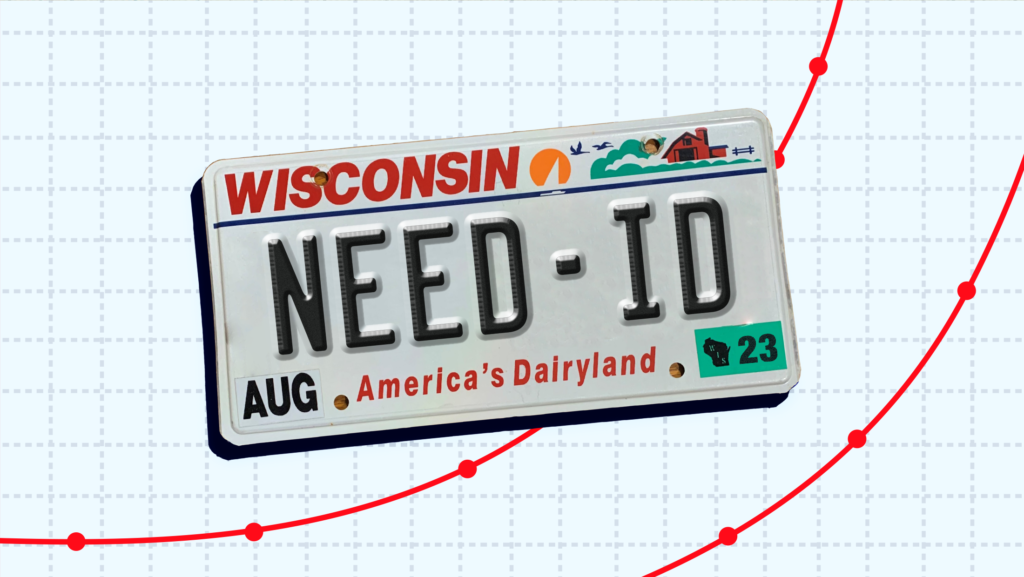Wisconsin’s DMV Holds the Keys to Our Democracy

At first blush, “freedom” seems like a funny word to associate with the Department of Motor Vehicles (DMV). But for most Wisconsinites, the DMV is the gateway to the freedom to vote, not just to the freedom of the open road.
Since 2011, when Wisconsin passed one of the most restrictive voter ID laws in the nation, the DMV has become the primary place where Wisconsinites can get the photo ID needed to cast a ballot. But a new report by All Voting is Local, in partnership with the Wisconsin Disability Vote Coalition and the League of Women Voters of Wisconsin, shows that when people lack access to DMV services, they lack access to the ID they need to be heard at the polls.
Here’s the problem: Wisconsin’s 2011 photo ID law centered the DMV as the primary place to get a photo ID, but did nothing to fix glaring gaps in DMV services. Those gaps particularly affect Black and brown voters and are especially cumbersome for non-drivers. The report shows that DMV service centers often provide limited hours in locations that are difficult to reach without a car and that access to transportation is a major barrier, especially ADA-accessible transportation. That results in a deliberate barrier to the ballot for the more than a quarter of residents (29%) who are non-drivers, according to data that the report’s authors received from Wisconsin’s Department of Transportation (WisDOT). For a non-driver living in Kenosha for example, the nearest DMV service center with Saturday hours is in Greendale. To get there, it could take nearly three hours, three buses, 74 bus stops and $19 — each way. And because of limited Saturday hours, you would have to navigate that whole journey to arrive before it closes at noon.
But access problems in Wisconsin don’t just exist for non-drivers. The report cites restrictive DMV service center hours, limited locations, confusing requirements and language barriers as categories of obstacles imposed on voters across Wisconsin, none of which the photo ID law addressed. The report highlights that of 80 permanent DMV service centers in Wisconsin, only 24 operate Monday to Friday, and only seven offer Saturday hours. Such obstacles serve as needless and discriminatory barriers to the ballot for tens of thousands of Wisconsinites who now need an acceptable form of photo ID for voting. These barriers have disproportionately impacted Wisconsinites of color, students, people with disabilities and older adults.
The report also notes the additional barriers for people with disabilities as they navigate accessibility-related challenges at the DMV above and beyond simply finding the time to get there. For example, the online DMV portal is not compatible with screen readers for the visually impaired and only 12 DMV locations have services for disability access.
Some of these barriers are unfortunately aspects of the ID law itself. For example, while the purported purpose of the photo ID law is to verify the voter’s identity before they are issued a ballot, Wisconsinites are required to prove more than just their identities when submitting documentation to get an acceptable ID. That’s a problem with the law that no DMV employee can fix.
It shouldn’t be this way. Wisconsin’s governor, lawmakers and WisDOT officials have a number of actions they must take to remedy the lack of access to DMV services in Wisconsin.
After all, ensuring voters have access to a photo ID is not solely the job of the DMV. The report offers an exhaustive list of 27 recommendations that Wisconsin’s Department of Transportation, governor and legislature must enact to mitigate the discriminatory impact of the voter ID law.
Among the common-sense recommendations: The Department of Transportation could implement Saturday hours at every permanent DMV service center, add more evening hours in the days prior to an election (and advertise those hours) and expand the use of satellite locations, online services and accessible materials so that all Wisconsinites can easily get an ID. Meanwhile, the Legislature should fix or repeal Wisconsin’s ID law while the governor’s office should fight for DMV service expansion in its budget to cover existing gaps.
Ultimately, to protect and expand our freedom to vote, Wisconsin’s public officials and lawmakers must protect and expand access to DMV service centers. Ensuring equitable access to a photo ID is the first step toward protecting and expanding the promise of Wisconsin’s democracy.
Alexis Ault is All Voting is Local’s Policy Consultant.